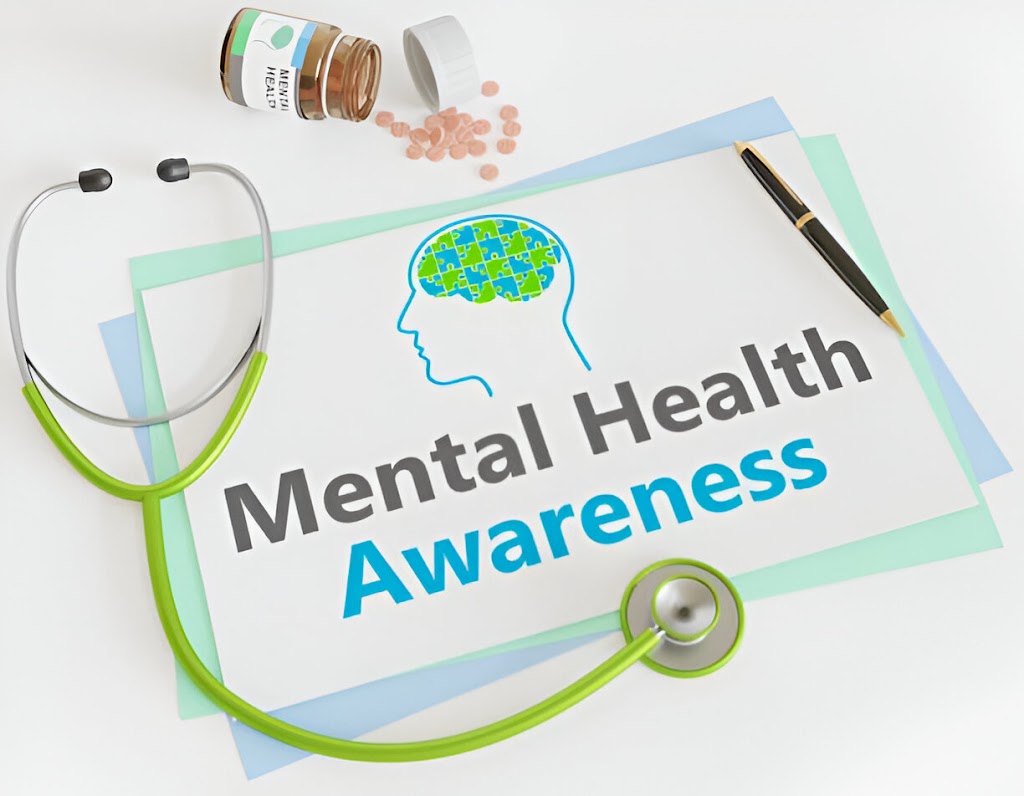Understanding Stress and Its Impact
Gaining a clear picture of stress plus how it affects you helps manage daily challenges without crashing. Stress pops up naturally when things get tough, yet if it sticks around too long, your health might pay the price. It shows up mentally and physically, messing with focus, energy, feelings, and even sleep or digestion. Spotting common triggers – like job pressure, money worries, or tense relationships – opens the door to dealing with them smarter.
Stress that’s left unchecked slowly impacts different areas of your system. Over time, pressure might mess up rest patterns, harm gut function, or raise chances of ongoing health issues. Seeing just how much strain affects total well-being makes it clearer why solid strategies help manage it.
When people notice how tough constant stress is, they start making mindful moves to lessen it. Using calming habits, building stronger connections, or adjusting daily patterns boosts their ability to cope.5 Looking at the full picture – mind, body, life – works best for staying healthy despite regular pressure.
What Is Stress and Why Is It Harmful?
Stress acts like your body’s internal warning signal, meant to prepare you when something feels off or tough. Yet if that alert mode fires too often or lasts too long, it might lead to mental tension along with health problems. Being stuck in high-alert for weeks or months messes with normal processes – cortisol plays a big role here – and opens the door to raised blood pressure, slower healing, plus emotional struggles including constant worry or low mood.
Figuring out how constant stress messes you up helps you do something about it. After a while, high tension might spark swelling inside, make focus hard, blur your memory, or shift your emotions and actions. Life gets tougher day by day when your brain and body can’t reset due to never-ending strain.
Once people see how harmful ongoing stress can be, they might start using ways to regain calm and heal. Breathing exercises, staying present on purpose, or talking with someone trusted ease the weight of constant pressure. Catching it sooner keeps your body healthier down the road while making daily life feel better.
Recognizing Common Triggers of Daily Stress
Finding out what makes your day stressful helps you handle it better. Work demands often play a big role, while personal relationships can also stir things up.
Too much work, rushed deadlines, or not knowing what’s expected can leave you feeling swamped. When tasks stack up and there’s just not enough time, it often leads to mental fatigue – or even full-on burnout.
Arguments with people close to you can really mess up your day. Tension at home, work, or among pals often ramps up anxiety. Small quarrels that go ignored tend to pile up. Over time, those little issues add extra pressure.
Once people notice what often sets them off, they can start making specific changes. Learning to say no helps, just like getting better at talking things through or using time smarter – this lessens daily pressure while helping life feel steadier.
The Physical and Mental Effects of Long-Term Stress
Stress that sticks around too long messes with almost all parts of your body.13 When you’re exposed to stress chemicals over time, your immune system might get weaker – so catching bugs becomes more likely. This ongoing pressure could raise chances of heart issues, bring on frequent head pain or tight muscles, yet interfere with how well your gut works.
Mental strain often boosts feelings like worry, sadness, frustration, or being emotionally drained. Trouble focusing or remembering things might pop up, so handling tasks gets harder. When pressure keeps going, it chips away at your ability to bounce back – small issues start seeming huge.
To fight these impacts, people need to focus on regular personal care while using practical ways to bounce back. Staying active, practicing mindfulness, or spending time with friends might reduce mental and bodily tension. Spotting long-term stress early helps someone take action sooner – keeping mood and body healthier down the road.
Implementing Healthy Lifestyle Habits
Prioritizing Regular Exercise and Physical Activity
Staying active every day helps you handle stress way better. Walking, doing yoga, moving to music, or lifting stuff can trigger your body to make feel-good chemicals that lift your spirits while calming your mind. Being on the move at regular times leads to deeper sleep, sharper thinking, plus a bigger get-up-and-go during hours when you’d usually crash.
Working out gives you another perk – it channels built-up emotions into something useful. Instead of sitting with anxiety, moving your body, like slow stretches or hard training, lets stress fade away. Doing physical stuff often trains your mind to handle pressure better while boosting mood and inner strength.
Embracing Proper Nutrition and Hydration
Fuel your brain and body with good food – it keeps mood steady when you’re under pressure. Stay hydrated too, since water helps your system handle daily strain better. Eating fresh fruit plus veggies gives lasting energy without crashes later on. Lean meats or beans add strength to your meals while helping control hunger. Whole grains work quietly to balance blood sugar so you don’t feel shaky or moody. Healthy fats like nuts or avocado keep cravings at bay between snacks.
Staying hydrated matters just as much. A slight lack of fluids might mess with focus, emotions, or how you handle pressure. Sipping water regularly keeps your body running smoothly while boosting mental sharpness and energy.
Steering clear of too much sugar, coffee stuff, or ultra-processed snacks helps keep mood swings in check. Fueling up with good food plus enough water boosts how well you cope when life gets hectic.
Incorporating Adequate Sleep and Rest into Your Routine
Sleep helps your mind and body recharge. If you don’t get enough rest, stress can build up, messing with focus, mood, or how well you handle tough moments. Sticking to a regular bedtime every night strengthens your body’s internal clock.
Chill time matters just as much. Pausing now and then clears your head while cutting down on brain drain. Instead of pushing nonstop, try a quick stretch or slow breaths – maybe even walk off the screen for a minute. These little stops boost your ability to handle pressure without burning out.
Prioritized sleep or quiet downtime gives your brain and muscles a chance to recharge so they work better.33
Developing Effective Coping Mechanisms
Using Relaxation Techniques such as Deep Breathing and Meditation
Relaxing methods give quick comfort when you’re tense while also balancing your nerves.34 When you breathe deeply, it turns on your body’s natural calm mode – this cuts stress and clears mental fog.35 Taking slow, even breaths helps quiet anxious thoughts, making you feel more centered instead of scattered.36
Meditation calms your thoughts while boosting present-moment awareness – no judgments needed.37 Doing it often builds steadier emotions, sharper attention, plus less knee-jerk reactions when pressure hits. Together, breathwork paired with mindfulness gives solid ways to reset anytime life feels off-track.
Building Strong Social Support Networks
A solid support network can really help when life gets tough.38 Talking with loved ones or local groups brings a sense of calm while cutting loneliness.39 When you open up to folks who’ve been through similar things, it eases pain and supports recovery.
Good relationships bring new ways to see things, so tough moments seem easier. Talking about real stuff while keeping close ties builds inner strength and helps your mind stay balanced.
Practicing Mindfulness and Positive Self-Talk
Mindfulness helps you stay focused on now instead of getting swamped by worry or tough emotions.41 When people pay attention to what’s going on right here, they tend to feel less nervous about yesterday or tomorrow.
Positive self-talk swaps out mean or judgmental thinking for kinder, uplifting words. Instead of getting stuck on what went wrong, you start seeing tough moments as chances to grow. Because of this mindset, facing obstacles feels less scary. Confidence builds when your inner voice supports rather than criticizes.
Mindfulness works hand in hand with upbeat inner dialogue – this combo helps ease worry while boosting steady emotions.
Time Management and Organization Strategies
Creating Realistic To-Do Lists and Prioritizing Tasks
Handling chores in a doable way cuts down stress while boosting output. Write down duties, then sort them by priority so you know where to direct energy.43 Splitting big jobs into bite-sized chunks simplifies progress while lowering pressure.
Adding rough times helps avoid packing your day too full – yet ticking done items lifts spirits and self-belief. Basic organizing cuts stress fast, even when things get busy.
Setting Boundaries to Balance Work and Personal Life
Setting limits keeps your mind healthy by keeping work out of personal hours.46 Use set times for work, shut off alerts when done, while making sure people know your rules to strengthen those lines.
Putting boundaries in place gives people space to recharge, enjoy personal interests, or spend time with others – which helps lower stress.47 Limits keep efforts going longer without leading to exhaustion.
Enhancing Productivity with Time-Blocking and the Pomodoro Technique
Time-blocking means setting aside chunks of time for certain jobs, so you can keep things tidy plus sharp.48 Working hard for a bit then pausing awhile – a method like Pomodoro – keeps your mind clear while avoiding burnout.
These approaches work hand in hand to build order, boost how things run, while supporting people in juggling output and downtime.
Seeking Professional Help and Resources
Recognizing When to Seek Therapy or Counseling
Seeing a pro might help if stress never seems to let up, feels overwhelming, or starts messing with daily life.50 Ongoing worry, feeling drained emotionally, trouble sleeping, or being unable to focus can mean it’s time to reach out. While some stress is normal, when it sticks around too long, talking to someone could make a difference.51 Noticing these patterns early helps prevent bigger issues down the road.
Therapists guide people in creating custom ways to handle tough moments, while digging into what’s really fueling their stress – also boosting lasting mental strength.52 Reaching out shows courage plus a real dedication to feeling better.
Exploring Support Groups and Community Resources
Support groups give people a chance to talk about their lives, feel heard, while getting support from others.53 Local mental health programs usually run meetings, classes – also practical help – for folks managing tough emotions.
Linking up with people who get what you’re going through builds connection while also sharing real tips on handling pressure better.
Utilizing Apps and Online Tools for Stress Management
Digital tools help you keep an eye on your feelings, try out meditation, or pick up ways to relax.55 Lots of apps come with step-by-step breathing guides, writing ideas, or peaceful activities. Virtual groups give support while keeping you inspired.
Using these tools daily might go well with other ways you handle stress – also keeping things steady now and then.
Summary
Staying steady each day means mixing different habits that work together. Moving your body often, fueling it well, catching enough rest, while also unwinding on purpose helps you handle both mood swings and fatigue. Hanging out with people who’ve got your back, saying no when needed, plus planning tasks step by step takes the edge off normal life strain.
If stress feels overwhelming to tackle on your own, talking to experts or tapping into local help might make a real difference. Trying out phone apps or online tools could add useful backup when needed. In the end, handling pressure isn’t one-size-fits-all – figuring out your personal approach while sticking with it over time brings lasting gains for how you feel day to day.
FAQs
How much time before stress tricks start helping?
Outcomes differ depending on the individual – yet sticking with it regularly brings real progress. Certain approaches ease things fast, whereas some need steady effort before you see a shift.
Q2. Can stress management techniques prevent all stress-related issues?
These methods might cut down on stress quite a bit, yet they won’t always remove every source – or how it makes you feel. If things start feeling unmanageable or just drag on too long, getting help from someone trained could make sense.
Q3. Do stress tips work the same for everyone?
Right. Everyone reacts in their own way to different approaches. Trying out options shows what works best for you.
Would you like me to focus on one of these sections, like Developing Effective Coping Mechanisms, and give you a more detailed breakdown or examples?




